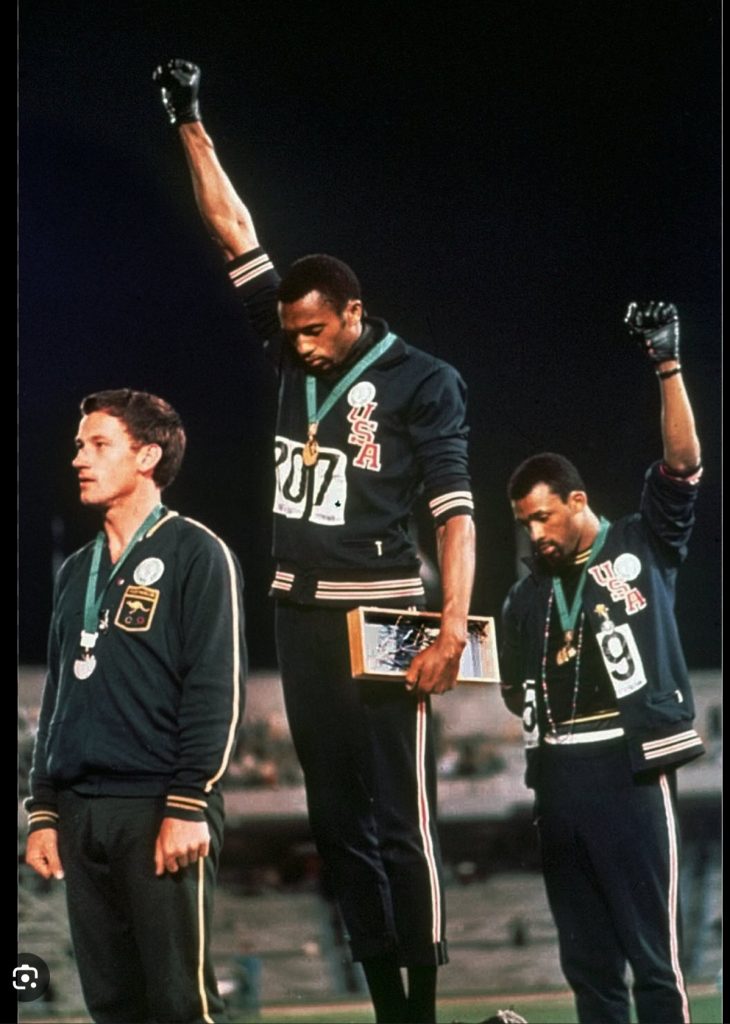
Tommy Smith and John Carlos made one of the most iconic demonstrations of athlete activism during the 1968 Summer Olympics in Mexico City. The two American sprinters, after winning gold and bronze in the 200-meter race, stood on the podium in a silent protest against racial injustice and inequality in the United States. As the national anthem played, Smith and Carlos each raised a black-gloved fist in a powerful, defiant gesture, symbolizing the Black Power movement. Smith, the gold medalist, also bowed his head during the anthem, while Carlos, the bronze medalist, wore a black scarf around his neck, representing the struggle for human rights. This act of protest, while controversial, would go down in history as a significant moment of sports activism.
Their protest was not just about civil rights but also a response to the broader racial struggles in America during the 1960s. The country was dealing with segregation, police brutality, and systemic oppression, especially against Black Americans. The 1960s were marked by major movements such as the Civil Rights Movement, and both athletes felt compelled to use their platform to raise awareness. Their protest was a response to the deaths of activists like Dr. Martin Luther King Jr., Malcom X, and the growing awareness of racial violence and inequality. For Smith and Carlos, the Olympics was not just an opportunity to compete but also a moment to stand for justice.
The gesture was met with both admiration and criticism. In the immediate aftermath, the International Olympic Committee condemned the protest, and both Smith and Carlos were expelled from the Olympic Village. American officials and media outlets also condemned their actions, accusing them of politicizing the Games. However, the two athletes remained committed in their beliefs, understanding that their protest was bigger than the immediate consequences. They believed that the message of racial equality and the fight against oppression was more important than the backlash.
Despite the backlash, the demonstration by Smith and Carlos sparked an ongoing conversation about athlete activism. In the years following the protest, they became symbols of resistance and have been celebrated for their courage in speaking out against injustice. Their protest inspired future athletes, such as Colin Kaepernick, who took a knee during the national anthem to protest police brutality, and other athletes who used their platforms to challenge societal issues.
Today, the iconic image of Smith and Carlos with their raised fists remains a powerful symbol of the intersection of sports and social justice. Their protest highlighted the role of athletes in challenging the status quo and raising awareness for critical issues. It served as a catalyst for future generations of athletes to understand their potential to make a difference, not only in their respective sports but also in society as a whole.